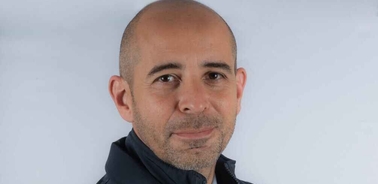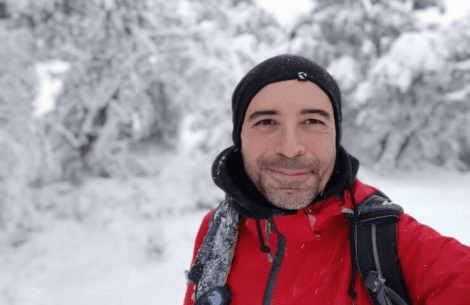- Home
- News And Events
- What’s Going On
- Faculty Spotlight: Fabrizio Salvador
Faculty Spotlight: Fabrizio Salvador

Meet one of IE Business School’s top researchers.
Even before the current moment, IE Business School’s Fabrizio Salvador was focusing research on how organizations respond to uncertainty by effectively recombining or reusing their resources. His thought-leadership has appeared in top-notch publications like Organization Science and MIT Sloan Management Review, among the others. Salvador, a Professor of Operations and Technology Management and acting Adjunct Vice-Rector for IE’s Applied Research, also holds leadership positions in top academic outlets, as founding Department Editor for the Journal of Operations Management, Senior Editor for Production and Operations Management and Associate Editor for the Decision Sciences Journal. He has been included in the prestigious Thinkers50 Radar ranking of management thought leaders.
What brought you to IE? Where were you before?
Before joining IE I was faculty at Arizona State University, Tempe. I had a great time there, even though it was better to be away in July, when the thermometer can hit the 50° C mark. When I decided to go back to Europe, I was impressed by IE’s dynamism and ambition. I always trust my first impressions, they tend to be right and this was no exception.
Have you ever had an a-ha moment while teaching that furthered your research? What was it?
Sure. When you teach a topic, you need to synthesize complex research streams into simple, essential messages. These simplified messages can open a new perspective on a topic or problem. It happened to me when I was teaching quality management and disaster recovery. I realized that disaster recovery was a special case of the ability of organizations to mitigate unexpected events, which in most cases are not disasters. This opened a stream of research into how people collaborate to mitigate routine non-conformities: everyday glitches that if not addressed can compromise firm performance.
What book do you wish your students would read before taking your class and why?
Well, I never read business books in my free time, so I would recommend, Failure is not an option by Gene Kranz, NASA Flight Director for the Apollo space program. It is a splendid account of how Apollo program managers and technicians taught us an evergreen story about leadership, innovation and operations in routine and emergency situations. Second advice is to read novels.
Please name one of the articles you feel addresses the most important issues in 2020-2021 for IE alumni?
I have a stream of recent publications that investigate what factors affect the productivity of knowledge workers—a fundamental problem in today’s knowledge-intensive economy. Curiously, knowledge worker performance is often associated to personal traits, training and collaboration, setting aside supervision. With various co-authors, I investigated how frontline managers may affect the performance of these workers: Capturing the Benefits of Worker Specialization: Effects of Managerial and Organizational Task Experience and When the Boss is Away: Manager-Worker Performance in a Multisite Software Maintenance Organization. The result challenges many stereotypes. For instance, worker performance can benefit when the manger is leading remotely the worker, when the manager is a specialist rather than a generalist, and when multiple managers are assigning simultaneously tasks to the worker (this last one is due out soon). These results also underscore the power of People Analytics for business improvement, an area where I am leading many projects with industry.
Whose research of your IE colleagues do you find interesting? Why?
Many colleagues at IE have interesting research. In my department, Manos Avgerinos, Mikko Ketokivi, Elena Revilla and Antti Tenhiala all have very interesting research themes and findings. Outside my department, there is plenty of very interesting research. Due to affinity to my interests, I’d mention research from Rocío Bonet’s on labor economics and from Juan Santaló on platform markets.
Tell us one personal thing about yourself that none of your students know. A hobby, sport or talent? Strange fact? Unusual interest?
Ah where shall I start? I am quite multifaceted type. I love hiking and “vias ferratas” in the mountains, playing piano, practicing meditation and spiritual development. In the tradition of Carl Jung, I am very fond of studying how ancient myths such Zeus or Lilith represent psychological archetypes. But, I am also a practical man. I can weld, do basic masonry and rewire home electrical systems.
